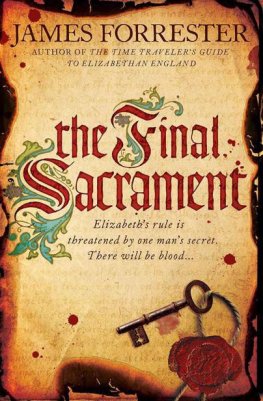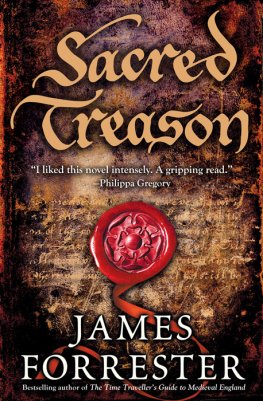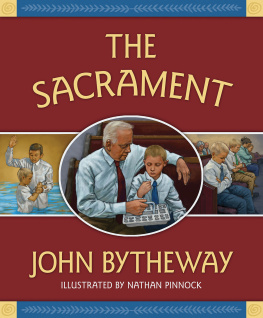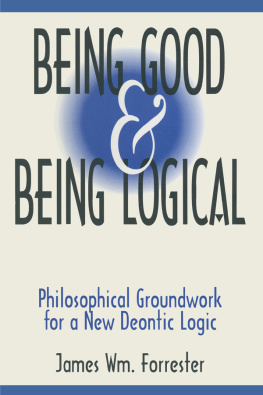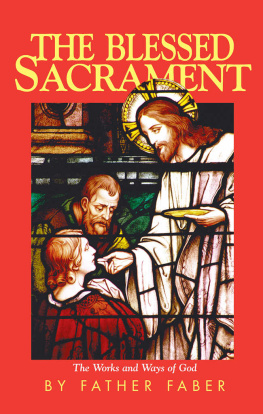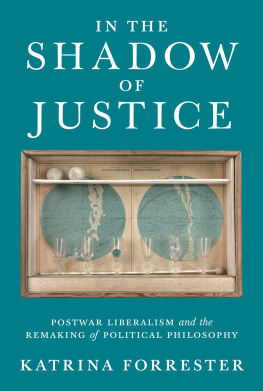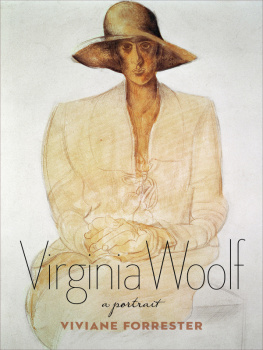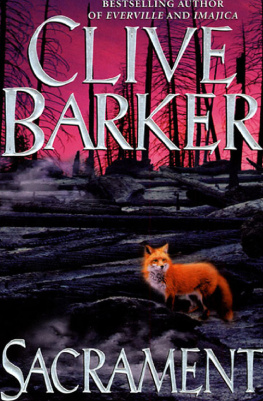James Forrester - Final Sacrament
Here you can read online James Forrester - Final Sacrament full text of the book (entire story) in english for free. Download pdf and epub, get meaning, cover and reviews about this ebook. genre: Detective and thriller. Description of the work, (preface) as well as reviews are available. Best literature library LitArk.com created for fans of good reading and offers a wide selection of genres:
Romance novel
Science fiction
Adventure
Detective
Science
History
Home and family
Prose
Art
Politics
Computer
Non-fiction
Religion
Business
Children
Humor
Choose a favorite category and find really read worthwhile books. Enjoy immersion in the world of imagination, feel the emotions of the characters or learn something new for yourself, make an fascinating discovery.
- Book:Final Sacrament
- Author:
- Genre:
- Rating:3 / 5
- Favourites:Add to favourites
- Your mark:
- 60
- 1
- 2
- 3
- 4
- 5
Final Sacrament: summary, description and annotation
We offer to read an annotation, description, summary or preface (depends on what the author of the book "Final Sacrament" wrote himself). If you haven't found the necessary information about the book — write in the comments, we will try to find it.
Final Sacrament — read online for free the complete book (whole text) full work
Below is the text of the book, divided by pages. System saving the place of the last page read, allows you to conveniently read the book "Final Sacrament" online for free, without having to search again every time where you left off. Put a bookmark, and you can go to the page where you finished reading at any time.
Font size:
Interval:
Bookmark:
James Forrester
Final Sacrament
And the Lord said unto Satan, Hast thou considered my servant Job, that there is none like him in the earth, a perfect and an upright man, one that feareth God, and escheweth evil?
Then Satan answered the Lord, Doth Job fear God for nought? Hast not Thou made an hedge about him, and about his house, and about all that he hath on every side? Thou hast blessed the work of his hands, and his substance is increased in the land. But put forth Thine hand now, and touch all that he hath, and he will curse Thee to thy face.
Job, Chapter I, verses 8-11Prologue
Wednesday, February 19, 1567
The boys shoulders were tense with cold as he stood on duty near the Kings Gate. Although it was almost dark he could still see the high wall running along the left-hand side of the street. The flickering glow of a torch lit the nearest stretch of brickwork. On his right, the palace rooftops loomed black against the frozen sky. Two servants came out of the shadows, walking into the palace. One caught his eye but did not acknowledge him. Three weeks had passed since he had come to court, supposedly to finish his education, and already he was regretting his fathers decision.
He rubbed his hands together, and blew on them. Tucking his fingers under his arms for warmth, he ran the toe of his shoe over the smooth surface of a small patch of ice. The air smelled of frozen earth, with traces of burning pitch from the torch. He felt hungry as well as cold. When he was older he would buy himself some gloves, he vowed, and never have to stand with such chilled fingers again.
He started to walk across the width of the gatehouse, whistling snatches of a tune he remembered his mother singing. He wondered if his parents were well. He thought of them talking about him back home in the village-about how proud they were that he was in the queens service at Whitehall. That image sweetened him and saddened him at the same time, for he knew how shocked they would be if they could see the way he was treated. Dick Venner regularly shouted at him as if he were his master, even though Dick was only a year older. It was Dick who was responsible for teaching him the ways of the court, and it was Dick who had beaten him with a wooden rod when he did not bow low enough to a Polish nobleman.
The sound of horses approaching at speed broke into his reverie. A moment later he saw their shapes come out of the darkness. There were four of them, their eyes great black beads in the torchlight, their heads glistening with sweat. Two men dismounted, both out of breath; one took the reins of his own horse and those of the other man. The latter was short and thin. The boy noticed the fine cut of his clothes; but even by torchlight he could see that the riding cloak was splattered with mud, the black silk doublet beneath it similarly besmottered. The man had a crease between his eyes so that it seemed like he was permanently frowning. His head was covered by a black skull cap-but he was not that old, only in his midthirties. He seemed distant from his companions. The two who remained mounted bade him farewell and departed; his companion led the two horses away to the stables.
Boy, take me to Sir William, the man said between short breaths.
Sir William. One of the first things that Dick Venner had taught him was that there was only one Sir William. Other men might be called Sir William this or Sir William that-but there was only one plain Sir William. He was Sir William Cecil, the queens Principal Secretary, and the most powerful man in the government: in fact, the most powerful man in the whole kingdom. He was also reputed to be the most intelligent. Normally the boy would not have known where Sir William was, but on this occasion he did. Sir William had rushed to court two days ago, when terrible news had arrived from Scotland. The rumor among the other boys was that Lord Henry Stewart was dead. Many messages had been delivered since then-one almost every hour. Sir William had barely left the queens side in all that time.
The boy bowed politely. With all respect for your lordship, Sir William has given instructions that he is not to be disturbed, except for messengers coming from Sir William Drury.
The small man with the skull cap looked directly at him. Do you not know who I am?
The boy stood firm, though inside he was quaking. No, my lord.
My name is Francis Walsingham. Sir William is my patron. I have news for him that will turn his hair gray. Now Walsingham reached forward and grabbed the boys ear in his right hand and twisted it. Take me to him, without delay.
Mr. Walsingham, sir, he has already received the news about the Scottish-
TAKE ME TO HIM! shouted Walsingham, pushing him toward the side door that led through into the privy palace.
Tears came to the boys eyes, but he blinked them back as he led the way along the covered corridor behind the Lord Chamberlains house. The route took them into a whitewashed corridor, through another door, out into the cold night again, and along a path between the mass of irregular buildings that formed part of the old palace. They passed the busy figures of servants, gentlemen, cooks, and clerks in the near darkness. In some places torches lit the route. Where it was dark, he felt his way, running his hand along the wall. He led Walsingham through to the great court and along one side of it, and under an arch into the stone gallery that ran between the privy palace and the privy garden. Finally, after hearing the heels of Walsinghams nailed boots ringing out behind him against the flagstones of the gallery for about fifty yards, he came to the entrance, lit by a wall-mounted metal lantern. He took the ring of the door handle, turned it, and entered, and after closing it again behind the visitor, went up a flight of stairs to the first of a series of antechambers.
He had expected to see two guards here, men who should have been on duty outside the closed door to the privy palace. But there was no one. He turned to Walsingham to explain that he was not allowed beyond this door.
Open it, snapped Walsingham before he could speak. The boy turned the handle and pushed the door open.
The chamber had large gilded beams in the high ceiling, with red and blue painted decoration between them. The colors were clearly visible in the light of six burning candles that hung in the center of the room. There were warming tapestries too, the figures on them like mysterious onlookers from the shadows. A fire was burning on a hearth-but there was no one to be seen.
Lead on, ordered Walsingham, his boots thudding on the floorboards.
At that moment the door at the far end of the chamber opened and a man in purple ecclesiastical vestments entered. He looked surprised to see them.
Your Grace, said Walsingham, bowing. The boy also bowed low.
Walsingham, you cannot go in, said the bishop in a deep voice. The queen and Sir William will not be disturbed. Besides He looked down at Walsinghams mud-spattered clothes and filthy shirt, her majesty will not approve of your apparel.
I am not looking for her approval. Sir William will not forgive me if I delay.
But will the queen? The bishop looked Walsingham in the eye. Never mind. If it concerns Lord Henry Stewart, youre too late. Theyve already heard it. Drury has been sending letters at regular intervals, and others have hastened here directly from the north.
My news is of quite another order. But what is this about Lord Henry? I have been away.
A sorry tale, but one that I fear was inevitable. He has been murdered-killed in the grounds of his house at Edinburgh. No one knows who is guilty and it seems the Scots queen has not arrested anyone, which leaves the finger of blame pointing at the lady herself.
Font size:
Interval:
Bookmark:
Similar books «Final Sacrament»
Look at similar books to Final Sacrament. We have selected literature similar in name and meaning in the hope of providing readers with more options to find new, interesting, not yet read works.
Discussion, reviews of the book Final Sacrament and just readers' own opinions. Leave your comments, write what you think about the work, its meaning or the main characters. Specify what exactly you liked and what you didn't like, and why you think so.

